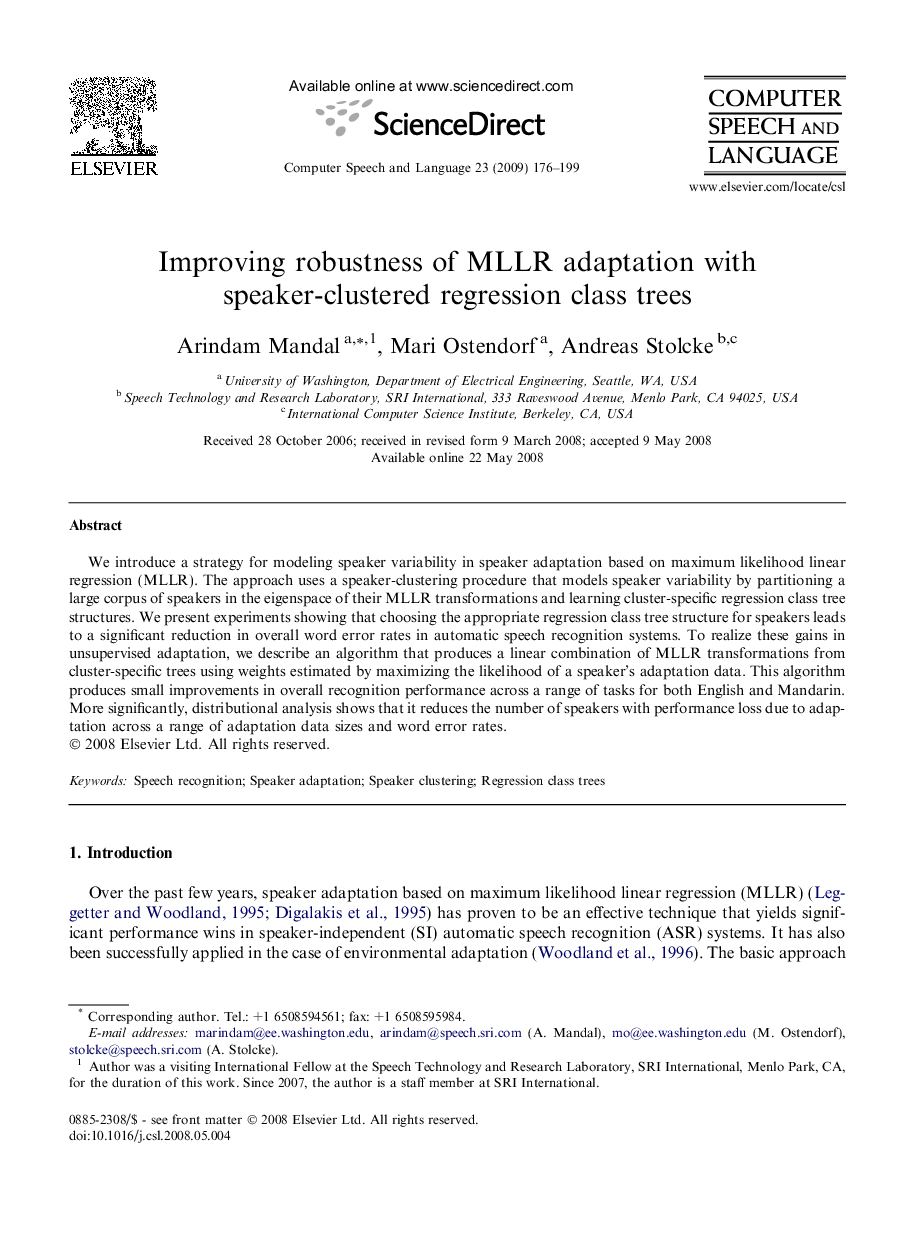| کد مقاله | کد نشریه | سال انتشار | مقاله انگلیسی | نسخه تمام متن |
|---|---|---|---|---|
| 558396 | 874918 | 2009 | 24 صفحه PDF | دانلود رایگان |

We introduce a strategy for modeling speaker variability in speaker adaptation based on maximum likelihood linear regression (MLLR). The approach uses a speaker-clustering procedure that models speaker variability by partitioning a large corpus of speakers in the eigenspace of their MLLR transformations and learning cluster-specific regression class tree structures. We present experiments showing that choosing the appropriate regression class tree structure for speakers leads to a significant reduction in overall word error rates in automatic speech recognition systems. To realize these gains in unsupervised adaptation, we describe an algorithm that produces a linear combination of MLLR transformations from cluster-specific trees using weights estimated by maximizing the likelihood of a speaker’s adaptation data. This algorithm produces small improvements in overall recognition performance across a range of tasks for both English and Mandarin. More significantly, distributional analysis shows that it reduces the number of speakers with performance loss due to adaptation across a range of adaptation data sizes and word error rates.
Journal: Computer Speech & Language - Volume 23, Issue 2, April 2009, Pages 176–199